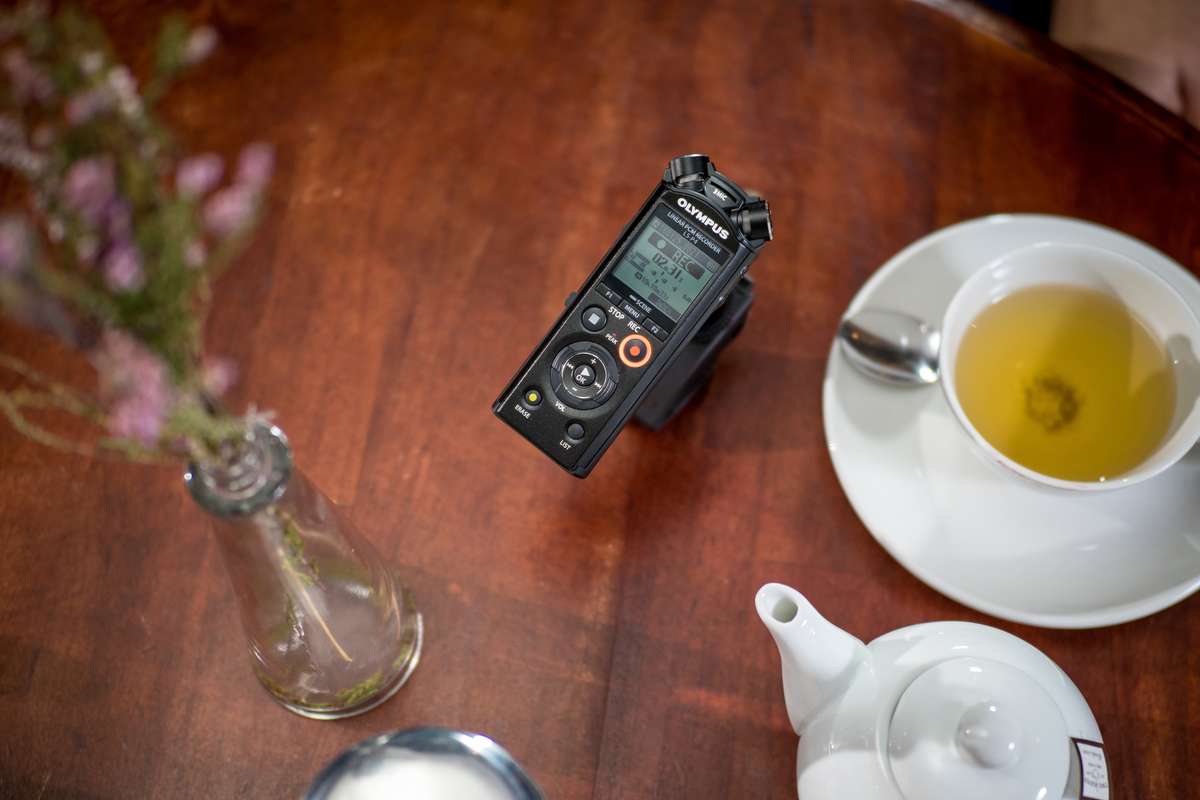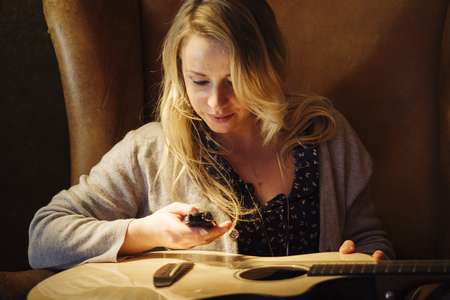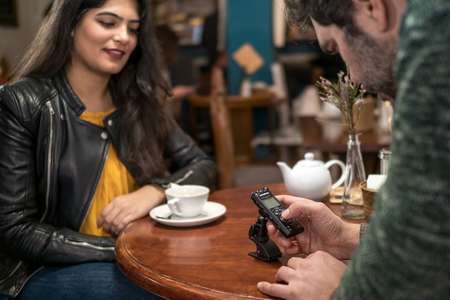Using “voice memos” on your smartphone works for recording in a pinch, but is less than ideal for professional-quality audio recordings. British composer Sheridan Tongue recommends an audio-specific digital recorder over any other handheld device that records sound. Tongue wrote the soundtrack for the Discovery Channel series “Into the Universe with Stephen Hawking,” as well as various pieces for National Geographic and PBS productions.
“Everyone puts so much effort into getting the pictures and the edit looking great, and the sound is always an afterthought, and the sound usually lets the end product down,” said Tongue. “A commercial director said to me once that picture is only 50 percent of the story. Audio is the other 50 percent. And if you’re audio is terrible, it’s a really bad starting point.”
His music is usually recorded in a professional studio, but he uses a digital audio recorder for many aspects of his job, namely creating video promos and as a secondary recording device in the studio. He spoke with Olympus on why it’s his preferred recorder outside of the studio.
THE MICROPHONE QUALITY
“The microphone on a phone is designed to pick up close sounds like a voice, and to exclude further sounds like traffic and background noise,” says Tongue. “So when you use a phone to record something that’s further away from the mic, it won’t record it as clearly as a microphone that’s been designed to pick up everything in the vicinity.”
Whether a digital recorder is sitting unobtrusively on the table during an interview or on the floor during a jam session, it will pick up the quality of sound you want and need. Plus, if you’re recording a conversation to send out to a transcription service, a clearer audio file can mean the difference between an correct document and a game of Mad Libs.
IT'S MUCH MORE VERSATILE
Whether you’re making a video, taping an interview, need to record a phone conversation, or recording your newest composition, you will get better audio if you’re using a digital recorder.
“When I’m speaking to camera, rather than using the audio on the camera, I would record the audio separately on my audio recorder for far better consistency and clarity,” says Tongue. “A digital SLR is predominantly capturing the picture in high quality, but depending on the setting of the camera, it does not prioritize the sound quality. Likewise on a phone.”
One function smartphone recording technology makes difficult is recording phone calls. With accessories for a digital recorder, you can easily record both ends of a phone conversation. New York Times feature reporter Taffy Brodesser-Akner is a big fan of the Olympus TP-8 Telephone Pick-up Microphone for recording phone interviews, which plugs in to your recorder and sits in your ear to clearly record the both ends of the exchange.
IT'S MORE RELIABLE
“[Audio recorders generally] have a longer battery life than a phone,” says Tongue. The LS-P4 specifically has about 39 hours of battery life, which is much more than a phone battery. “And it takes micro-SD cards so you can just get new ones and keep filling them up.” This means you won’t have to stress over whether you’re recorder is going to die in the middle of an interview, or if it’ll save the file properly.
Another thing you can count on with an audio recorder is continuity. If a phone call comes in mid-session, it’ll interrupt your recording and stop it automatically (you could put it on airplane mode, but that’s not reasonable or possible in every situation). A digital audio recorder is one that will save you hassles and help you create higher-quality work in the long run.


